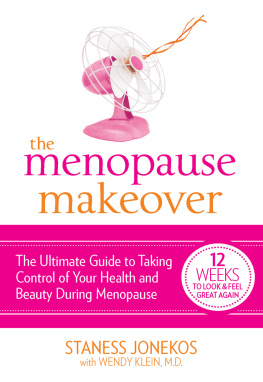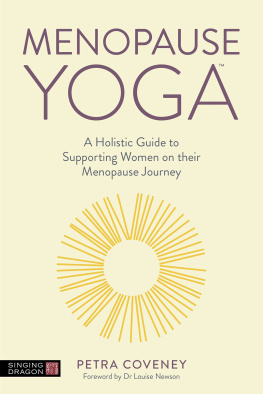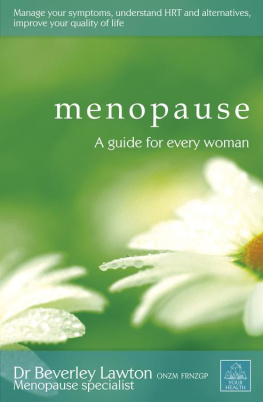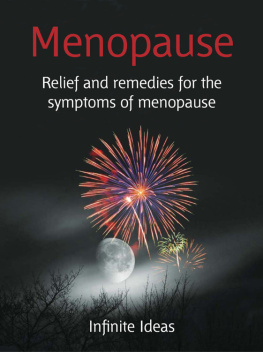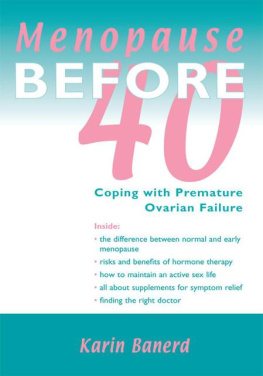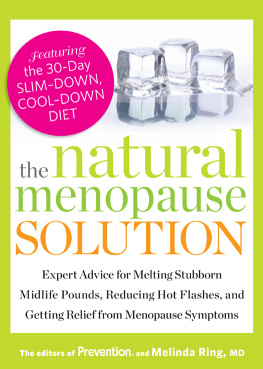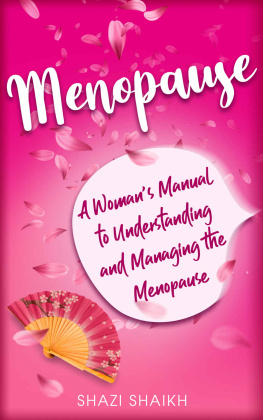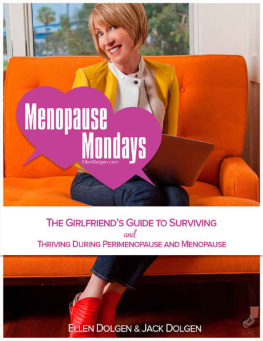About the Author
Maryann Karinch is the author of thirty books, including Sex and Cancer: Intimacy, Love, and Romance after Diagnosis and Treatment with Saketh Guntupalli (Rowman & Littlefield, 2017). Maryann has teamed up with seven doctors, two interrogators, a former CIA operative, and several other experts to produce some of the books in her list. She is an American Council on Exercise (ACE)certified personal trainer. Among the international media outlets that have covered Maryanns human behavior work are: ABC News; Boston Globe; Christian Science Monitor; Dallas Morning News; Fast Company; Huffington Post; Washington Post; New York Daily News; NPR, and others.
Acknowledgments
Two men figure very prominently into my acknowledgments because I would not be here without their partnership and caring: my dearest partner, Jim McCormick, and my amazing physician and co-author of Sex and Cancer, Saketh Guntupalli.
I owe tremendous thanks to the physicians, medical device and personal products experts, sex therapists, physical therapists, sex and sensual researchers, and nutritionists who generously contributed their insights, as well as to the people supporting them who provided documents and background information that was vital to making the discussions accurate (in alphabetical order): Betsy Cairo, PhD, HCLD, CSE, CSES, executive director, Look Both Ways, Inc. (www.lkbthwys.org); Carolyn Dean, MD ND, on the medical board of the nonprofit Nutritional Magnesium Association and author of Menopause Naturally and The Magnesium Miracle (second edition, 2017); Rebecca Dunsmoor-Su, MD, MSCE, FACOG, owner, RENUvaGYN, and director of health, genneve.com; Alyssa Dweck, MS, MD, FACOG, voted a Top Doctor in New York Magazine and medical advisor for menopause symptom-reliever Relizen; Rachel Gelman, DPT, PT, branch director, Pelvic Health and Rehabilitation Center, San Francisco; Suzan French Gennace, president of FlackShack; Mallory Junggren, senior director of Marketing JDS Therapeutics, LLC; Lori Ann King, wellness expert and author of Come Back Strong; Boris Levitsky, Net Improvements; Trevor Crow Mullineaux, LMFT, author of Forging Healthy Connections and Blending Families; Shannon Perry, director of media and marketing, genneve.com; Carol Queen, PhD, Good Vibrations Staff Sexologist; Brent Reider, designer of Yarlap and six other Class II medical devices cleared by the Food and Drug Administration as well as in Europe; Jenni Skyler, PhD, LMFT, CST, founder of The Intimacy Institute of Boulder and originator of the Cheesecake of Pleasure; C. Nicole (Doc) Swiner, MD, a family physician voted #1 of 10 Best Doctors in North Carolina in 2017, and author of How to Avoid the Superwoman Complex; Beverly Whipple, PhD, RN, FAAN, professor emerita, Rutgers University, author of Safe Encounters and The G Spot and five other books, and the researcher who identified and named the G spot with her colleague John Perry as part of their teaching pelvic muscle contractions to women to treat urinary stress incontinence; Robert S. Wool, MD, co-founder of Womens Health Associates and a thirty-year veteran in quality womens health; and Yvonne Wray, computer scientist and an instructor with The Welcomed Consensus.
Speaking of The Welcomed Consensus, I want to thank my amazing client Ginger Testerman, whose parents founded this great teaching organization focused on womens pleasure. Anyone who finds this book useful should (please) visit their website (www.welcomed.com) and prepare to learn as well as enjoy a new level of intimacy.
Thank you, once again, to my editor, Suzanne Staszak-Silva, and to Hannah Fisher and the rest of the outstanding Rowman & Littlefield team. Working with you is a joy and a privilege!
I also want to thank so many friends, whom I believe would like to remain anonymous so their disclosures are not associated with them. You know who you are and how much you gave me. We are all women of a certain, exciting age with amazing relationships that naturally go up and down and up and upwith the up being intimacy that has gone from a boil to a steady, satisfying simmer and back to an occasional boil! Thank you specifically to my friends in the PEO sisterhood and my best gal pals from college who chat about all kinds of things with me as part of my research.
Last but not least, I want to thank my dear mother, Ann Karinch, and my brother, Karl Karinch, who stand by me in all these investigations and products of my curious brain. I love you.
Chapter One
Myth versus Reality
Menopause is unnatural. Nearly all animals on the planet can procreate until they die. Humans have done such an exceptional job of sustaining and extending life, however, that the phenomenon of having many nonchildbearing years has become common.
Every time a book about menopause is released or an aging celebrity reveals what shes going through, we hear, How refreshingwe never used to talk about this! Well, we didnt talk about it because not as many women experienced it. Menopause was a secret because it was non-existent or a much briefer period of life for most women.
In 1920, the average life expectancy for a woman in the United States was about fifty-five years. One hundred years later, its eighty yearsa quarter of a century longer to experience menopause and postmenopause. No wonder were having discussions about it now!
As women began to share anecdotal information about hot flashes, weight gain, and other physical changes associated with an aging body, myths about menopause crept into the conversation. The myths fall into two main categories: absolutes and distortions. Ten common myths could be sorted like this:
Absolutes
Hot flashes are inevitableand theres not much you can do about them.
Youll gain weight.
Your bones will weaken.
Its okay to leave birth control behind.
Hormone therapy is dangerous.
Distortions
Your sex drive will plummet.
Menopause causes depression.
Menopause is menopause, regardless of whether it is natural or artificial.
Estrogen production stops with menopause.
Start watching for symptoms in your mid-forties.
ABSOLUTES THAT ARE ABSOLUTELY WRONG
Some of the incorrect absolutes that were believed by many women in the twentieth century have been debunked so often that they no longer make the list. They would include your period just stops one day and meno-pause makes you bad-tempered. There is anecdotal evidence to support both of these myths, of course, but they are far from absolute truths.
In contrast, many women have been told the following five so often that they believe them. As someone I knew who worked in the intelligence community once told me, If you trust me and I tell you over and over again that the sky is orange, it will eventually look orange to you.
Myth: Hot flashes are inevitableand theres not much you can do about them.
There is no denying that surveys suggest that eight out of ten menopausal women report that they have had hot flashes, known as night sweats when they occur after bedtime. Look at the data with the flipside perspective: A 2015 study by the University of Pennsylvania confirmed that 20 percent of the women participating had either no hot flashes or only mild ones.
Placing the blame solely on the hormonal imbalance occurring with menopause brushes aside the importance of key lifestyle and environmental factors that can affect their occurrence and severity. There are causes and triggers for hot flashes in women besides the drop in estrogen levels, an event that interferes with the bodys thermostat.
Two significant triggers are excessive alcohol consumption and smoking cigarettesbut if you overindulge in those two things, hot flashes are probably the least of your health worries. You will also want to avoid the Szechuan sauce and double-shot espresso drinks because spice and caffeine can crank up your temperature. Tight clothing, stress, and dehydration also can contribute to the onset and intensity of hot flashes. Having too much iron in your system has also been documented as a causal factor in hot flashes and night sweats.


